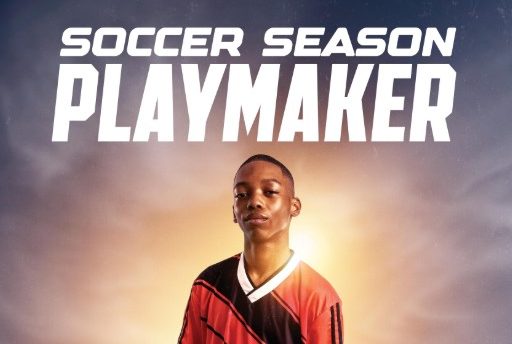Soccer Season: Playmaker is less about the thrill of the game and more about the people playing it, their struggles, their dreams, and the invisible battles they fight off the field.
By Joseph Jonathan
Stephina Zwane’s Soccer Season: Playmaker is a South African sports drama that sidesteps the genre’s typical weighted emotions, opting instead for a comedy-driven narrative. Written by Prudence Thabethe, the film follows Lunga (Bahle Hadebe), a talented but introverted teenager from the Eastern Cape, as he navigates bullying, parental pressure, and the challenges of joining Soweto Kickers, a local football team. While the underdog story feels familiar, the film distinguishes itself through humour and subtle social commentary, even if it occasionally struggles to balance its tonal ambitions.
At the heart of Soccer Season: Playmaker is the theme of self-identity under pressure. Lunga is not just chasing football stardom, but also trying to understand who he is when weighed against his father’s towering expectations and the hostility of teammates and strangers alike. When Lunga’s father appears in the crowd during a game, Lunga underperforms, unraveling the quiet tension of a boy who wants to be seen but fears being judged. His journey is one of reclaiming confidence while staying true to his roots.
Soccer Season: Playmaker also explores xenophobia and cultural prejudice, particularly through the character of Coach Ofeimun (Genoveva Umeh). As a Nigerian woman coaching in South Africa, she constantly battles subtle and overt reminders that she is an outsider.
Similarly, Lunga is bullied by opposition teammates for being from the Eastern Cape: a narrative choice that reflects broader societal issues within South Africa, where regionalism and ethnic prejudices still linger. These instances are not overly dramatised, but their steady presence throughout the film lends an authentic weight to the story.

Equally important is the theme of gender discrimination, particularly in male-dominated spaces like competitive sports. Coach Ofeimun’s presence is a direct challenge to the entrenched gender norms that govern football, from being denied a position at a top club during the hiring process, to facing constant undermining by her male counterparts at Soweto Kickers. Even Lunga’s initial outrage at being placed in the D Team, which includes several girls, speaks volumes about how deeply gender biases are internalised. The film uses these moments to expose the quiet, persistent sexism that women in sports endure, not just from institutions, but from players and families as well.
One of the conventional sports drama tropes that Soccer Season: Playmaker embraces is teamwork and community. Despite personal rivalries, bullying, and misunderstandings, the Soweto Kickers must eventually learn to come together. The film subtly emphasises how unity, both on and off the pitch, is necessary for true success, not just in winning matches, but in overcoming social divides.

Narratively, the story holds its own. While it may not break new ground in the sports drama genre, it sustains enough interest with its character arcs and lighthearted tone. However, those expecting an emotionally charged narrative typical of the genre may come away slightly disappointed. However, the film makes up for this with light-hearted comedy that is bound to keep you entertained, making the experience more of a sports-themed dramedy than a hard-hitting drama.
Visually, the film boasts the kind of picturesque cinematography that South African cinema has become known for: sweeping shots of stunning local landscapes that ground the story in a vivid sense of place.
On the field, the camera often follows the players’ feet in tight, kinetic shots, a technique known as low-angle tracking or foot-level tracking. While this approach adds intimacy during training scenes, it fails to capture the dynamism and pace expected in match-day sequences. The resulting effect is a somewhat sluggish portrayal of the actual games, lacking the thrill and high-octane energy that could have elevated the football scenes.

Hadebe delivers a commendable performance as Lunga, capturing the vulnerability, fear, and passion of a young man striving to live up to the expectations placed upon him, both on and off the pitch. Equally noteworthy is Genoveva Umeh as Coach Ofeimun, a Nigerian expatriate navigating xenophobia and sexism in her coaching role. Despite her cliché dialogue, Umeh imbues the character with quiet resilience, transcending the script’s limitations to make Coach Ofeimun a standout.
In the end, Soccer Season: Playmaker is less about the thrill of the game and more about the people playing it, their struggles, their dreams, and the invisible battles they fight off the field. While it may not deliver the high-stakes drama or emotional weight typical of the genre, it shines in its quiet commentary on identity, belonging, and resilience. With worthwhile performances and a touch of humour, the film manages to entertain while still nudging viewers to reflect on the deeper issues woven into its story.
Rating: 2.5/5
Joseph Jonathan is a historian who seeks to understand how film shapes our cultural identity as a people. He believes that history is more about the future than the past. When he’s not writing about film, you can catch him listening to music or discussing politics. He tweets @JosieJp3.



